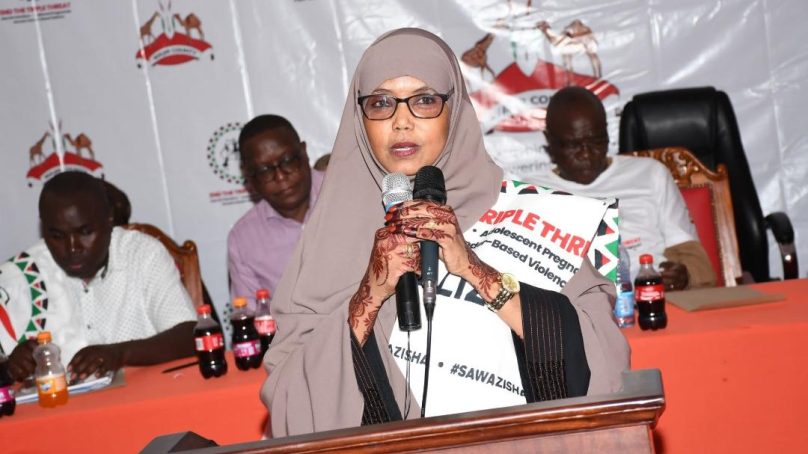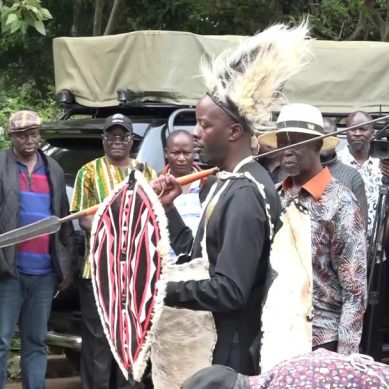
National Syndemic Diseases Control Council (NSDCC) in collaboration with Wajir County government and development partners, has rolled out a high-level awareness campaign to tackle the triple threat of HIV infections, gender-based violence (GBV) and teenage pregnancies.
The public awareness campaign held in Wajir town, brought together health professionals, county and national government officials, civil society actors, youth and women leaders in a joint call to action against the rising syndemics that affect the most vulnerable populations throughout Kenya.
Speaking at the event, Wajir County Executive Committee Member for Health Habiba Ali Maalim noted that although HIV prevalence in the county remains low at 0.2 per cent, there is a worrying rise in new infections, especially through mother-to-child transmission.
“To address this, we have operationalised 56 health facilities offering HIV testing services, with current coverage reaching 60 percent. Additionally, the county recently recruited 144 nurses to strengthen HIV testing and counselling, particularly in remote areas,” CECM Habiba said.
Deputy County Commissioner (DCC) for Wajir East George Onyango, who represented the county commissioner warned against cultural practices that hinder justice for GBV survivors.
He condemned informal dispute resolutions commonly referred to as ‘mashallah law,’ saying it undermines legal frameworks and shield perpetrators.
“This illegal practice endangers victims and will not be tolerated. Chiefs and local administrators are under strict instructions to raise awareness and ensure justice prevails,” said DCC.
NSDCC Acting Chief Executive Officer Douglas Bosire commended Wajir’s proactive efforts, emphasising the importance of community-driven strategies in low-burden regions such as Wajir, Mandera, Garissa, and Turkana.
“With donor support declining, we must adopt multi-sectoral approaches that involve health workers, youth, cultural elders and religious leaders. Male involvement in maternal and child health is also crucial in reducing mother-to-child HIV transmission,” Bosire said.
He expressed concern over the declining national awareness on HIV prevention that has dropped from 80 per cent in the 1990s to 59 per cent as per the 2022 Kenya Demographic Health Survey.
“In Wajir, knowledge levels stand at a low 29 per cent, necessitating urgent information dissemination,” he stated.
NSDCC Chair Geoffrey Gitu reiterated the council’s commitment to decentralising HIV and GBV prevention strategies and called on local leaders and media to champion the campaign at the grassroots level.
“This is a national duty but more importantly a community duty. We must own this fight,” he stated.
The council and county government pledged to replicate the campaign across all six sub-counties to ensure maximum impact and community reach.
- A Tell Media / KNA report / By Hamdi Buthul
Wajir County Executive Committee Member for Health Habiba Ali Maalim.






